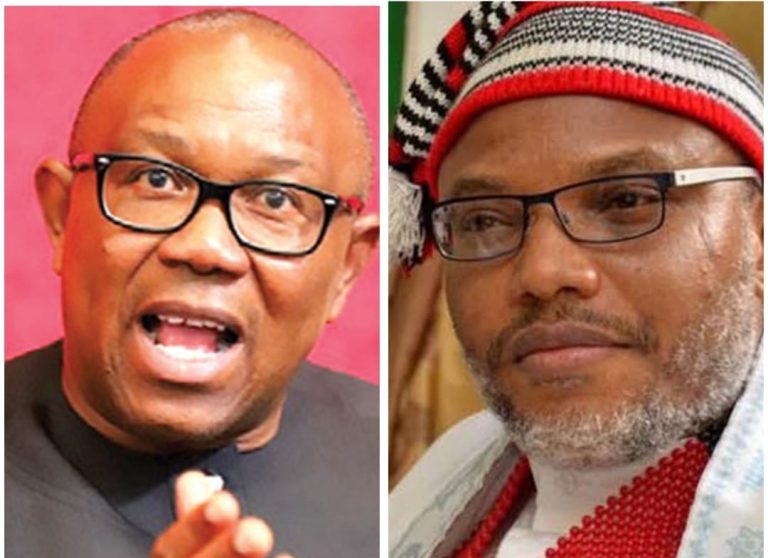Peter Obi, the presidential candidate of the Labour Party in the last election, continues to dodge the subject of IPOB even as the proscribed terror group intensifies its murderous campaign across the south-east in response to calls for an end to its illegal sit-at-home exercise.
Since the beginning of the week, the group has stormed different markets in Ebonyi, Enugu and other states in the region where they attacked transport workers and traders for defying their order for them to remain indoors. The sit-at-home exercise is a violently-enforced trade and movement restriction imposed by IPOB to protest the arrest and detention of its leader, Nnamdi Kanu.
Political leaders in the region, including governors, senators and other prominent voices, have voiced their dissatisfaction with the violent campaign and vowed to work with security agencies to checkmate the terror group in the region.
However, Peter Obi is a notable exception, as he maintains a disturbing silence despite his large following in the region and speculated ties with the leadership of the group which backed him officially in the last election.
Several reports and clips of IPOB’s brutal violence have made the rounds on the internet and in the mainstream media, drawing shock and condemnation from members of the public. In Ebonyi, the group invaded a market in Abakaliki, shot at motorcyclists and sent traders scampering for safety while yelling expletives at them for refusing to comply with the sit-at-home order.
They also put fire to some tricycles and other business establishments for operating despite the call for them to remain indoors. Senator Ubah of Anambra has described the actions as economic sabotage fuelling poverty and hardship. Other governors such as newly-elected Peter Mbah of Enugu State have vowed to use the instrument of state in combatting the violence and restoring the pre-eminence of the state over criminal elements and their arbitrary demands.
Their vocal opposition to the group has called into question Obi’s silence, especially as he has made a routine out of issuing long, impassioned statements on headline events, including those taking place in distant communities in the country. Many are querying why he has turned a blind eye to a major crisis claiming lives and obstructing peace in states and cities across his home region.
Critics have credited Obi’s silence and observed reluctance to speak against IPOB to his alleged political alliance with the group. In the buildup to the general elections in February, the terrorist group made public its support for Obi and deployed its vast propaganda network, online and offline, to the promotion of the former Anambra governor and the spread of fake news about his opponents.

